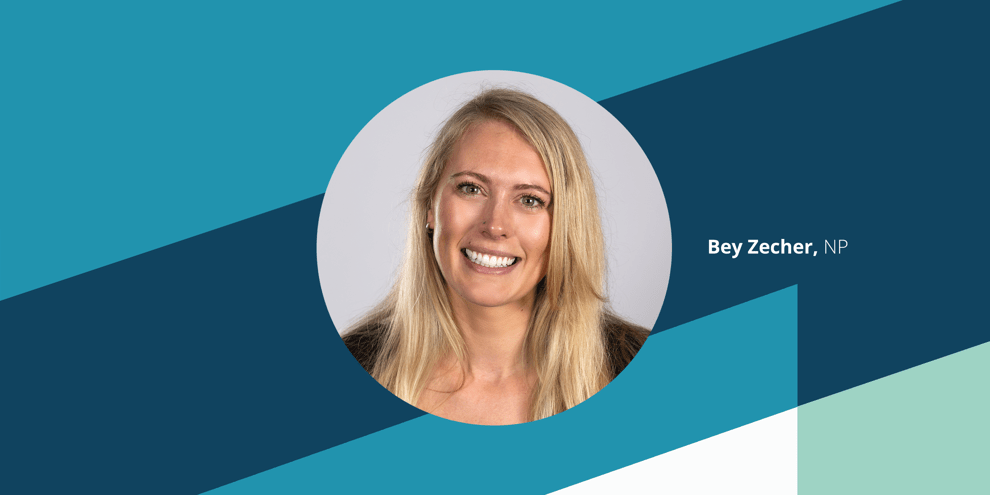New Provider Bey Zecher Wants You to Sleep Better
- Category: Blog, Sleep Disorder Center, Inspire Sleep
- Posted On:
- Written By: St. John's Health

St. John’s Health (SJH) is pleased to welcome Bey Zecher as Nurse Practitioner in its Sleep Disorder Center. After completing her graduate studies, Bey initially worked in the sleep health field in Rexburg, Idaho. When her current position at SJH opened, she jumped at the opportunity to serve the community in which she lived. Bey began working in sleep medicine at SJH in January of 2022 and now manages the care of nearly all of the sleep health patients being treated at SJH. Most of Bey’s work involves insomnia and sleep apnea, although she also provides care for patients experiencing several other sleep disorders including parasomnias, restless legs syndrome, and periodic limb movement disorder.
Bey emphasizes how important she feels her role is in the community. “I think our community is really based on healthy lifestyles and getting outside and being active. It’s kind of like the Wyoming way,” Bey says. Sleep has major effects on human quality of life, and specifically for those in our community, the ability to perform the outdoor activities we love so much. Bey feels she is valuable to the people in our community because she is able to do a lot of hands-on work with them. This can look like calling people frequently to check in with them, being there to walk them through what they are experiencing with their sleep, and being there “if they need a little extra love,” as Bey says herself. People appreciate the fact that Bey has the time in her schedule to sit down and really break things down for them so that they can better understand their challenges as well as treatment options.
Depression, anxiety, diabetes, high blood pressure, dysrhythmias, heart attack, and stroke are linked to poor sleep and sleep apnea. Not taking care of yourself and your sleep can result in very serious health consequences. Bey brings up the alarming statistic that an estimated 80% of cases of moderate and severe obstructive sleep apnea are undiagnosed. This means that millions of people are suffering from the negative health effects of unaddressed sleep health issues. Sleep health is important for absolutely everyone, and fortunately care is much more accessible than it has been before. Addressing your own sleep health can result in improvements in almost every other aspect of your life. Bey says, “If I can help this one little part in your life to make the rest of it better, I’m happy to do that.”
Bey encourages people of all ages and genders to monitor their sleep health. Be consistent in your sleep routine. Your wake up time will set your bedtime, so try and wake up at the same time everyday. Try to give yourself seven to eight hours of sleep. Never get into bed if you’re not drowsy, and if you can’t fall asleep within twenty minutes, try getting out of bed and doing a relaxing activity until you feel drowsy. This could be as easy as folding laundry or doing a facial mask treatment. Limit the amount of time you spend in bed each night because the more time you spend in bed thinking, the more your brain will start to associate the bed with thinking instead of sleep or intimacy. Lifestyle modifications like smoking cessation and avoiding alcohol close to bedtime can improve your sleep quality. Bey’s goal for all patients she sees at SJH is to “Get you sleeping in a way that works for you.”

.1).jpg)

.jpg)